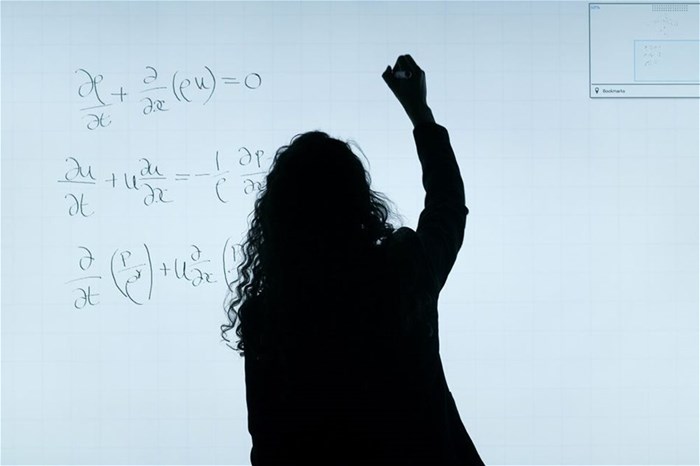
Stadio, a private tertiary education provider, investigates the role of mathematics and whether it is still relevant in our changing world.
At Stadio, we have found that admissions for many prospective students are compromised by their low Matric maths scores, which are a prerequisite for numerous tertiary qualifications. Some parents and matriculants question why this is still the case.
Divya Singh, chief academic officer, says "We have people asking, ‘Why do we still need to teach maths at high school when pretty much everyone has a phone with a calculator app with them all the time?’ or ‘Won’t AI do the maths for us?’"
Some of Stadio's maths experts and teachers provided excellent reasons why maths remains important.
Adel Hartley, a maths lecturer, says that fundamental mathematics is critical if South Africa seeks to have literate citizens. “Many current tertiary students' challenges go back to foundational shortcomings, and taking students into tertiary with a weak grounding sets them up for failure,” she says. “Maths is a conceptual subject; it’s not just about calculations.”
She points out that a calculator is a useless device unless one understands basic mathematical concepts. The same goes for AI – before you can ask for an answer to a mathematical problem, you have to understand what to ask and then how to interpret the response.
“You need maths to know what the numbers displayed and stored on your phone mean and how much data you have left!” adds Rowan Thompson, discipline leader: Maths, Science and Technology.
“Problem-solving is something our brains manage easily. Robots and calculators only give us back what we feed them (ask ChatGPT). If maths is taught well, it empowers learners to think for themselves and solve life's problems.”
“Maths is never about a final correct answer, which is where most people get it wrong,” notes Caryn Naude, Discipline Leader: Foundation Phase Studies. “It is also not about a final mark in an examination. Maths is a specific way of thinking about problems in everyday life. It involves creative, critical and logical thinking and reasoning. The development (or mastering) of these skills is an indicator for success and a key attribute to be successful in the fourth industrial revolution.”
Hartley says the formal reasoning content taught in Grades 8 and 9 maths is important for brain development. “However, how maths is taught is very important, and mostly it’s taught as a range of rules to be illogically applied, without any base understanding of its purpose and direction,” she says. “We have a mile-wide, inch-deep curriculum, like many western countries. In the Finnish system, as well as in China, they cover fewer topics but with more depth and conceptual understanding, rather than focusing only on fluency of applying rules.”
She believes maths literacy is critical for developing critical thinking, logical reasoning, problem-solving, seeing and describing patterns, and many more skills. “However, it can also do none of these if not taught properly.”
Naude says that maths education needs to change focus from doing calculations (which can be done automatically) to thinking about what problems need to be solved and what variables should be inputted to arrive at a solution.
Hartley teaches MATI400, a subject in Stadio’s Intermediate Phase teaching qualification, which she says is being restructured for 2024 to bring the content in line with the type of math teacher Stadio would like to produce. This includes a focus on developing skills aimed at helping to change the education of maths in schools, focusing more on teaching through problem-solving, as well as offering remedial support and taking into account recent research into math education.
Thompson believes maths is important on a societal level. “Algebra at its simplest level starts with learning proportion,” he says. “Without a sense of proportion our country will not rise out of poverty and empower the 80% of the population who were marginalised under apartheid. Mathematics teaches measurement. Without an understanding of how to measure, we cannot judge anything.”
Thompson started his professional career as an industrial designer. “I taught the suite of subjects under the title 'Design Technology' for almost 20 years. It is easy to motivate learners to appreciate applied maths if they can study design technology,” he says. “If South Africa invested in practical design and technology education and valued such subjects from primary school to matric level, learners would get a chance to experience applied maths in schools. If all they ever get to do at school is learn theory and sit tests, we will never see an improvement in real mathematical ability.”